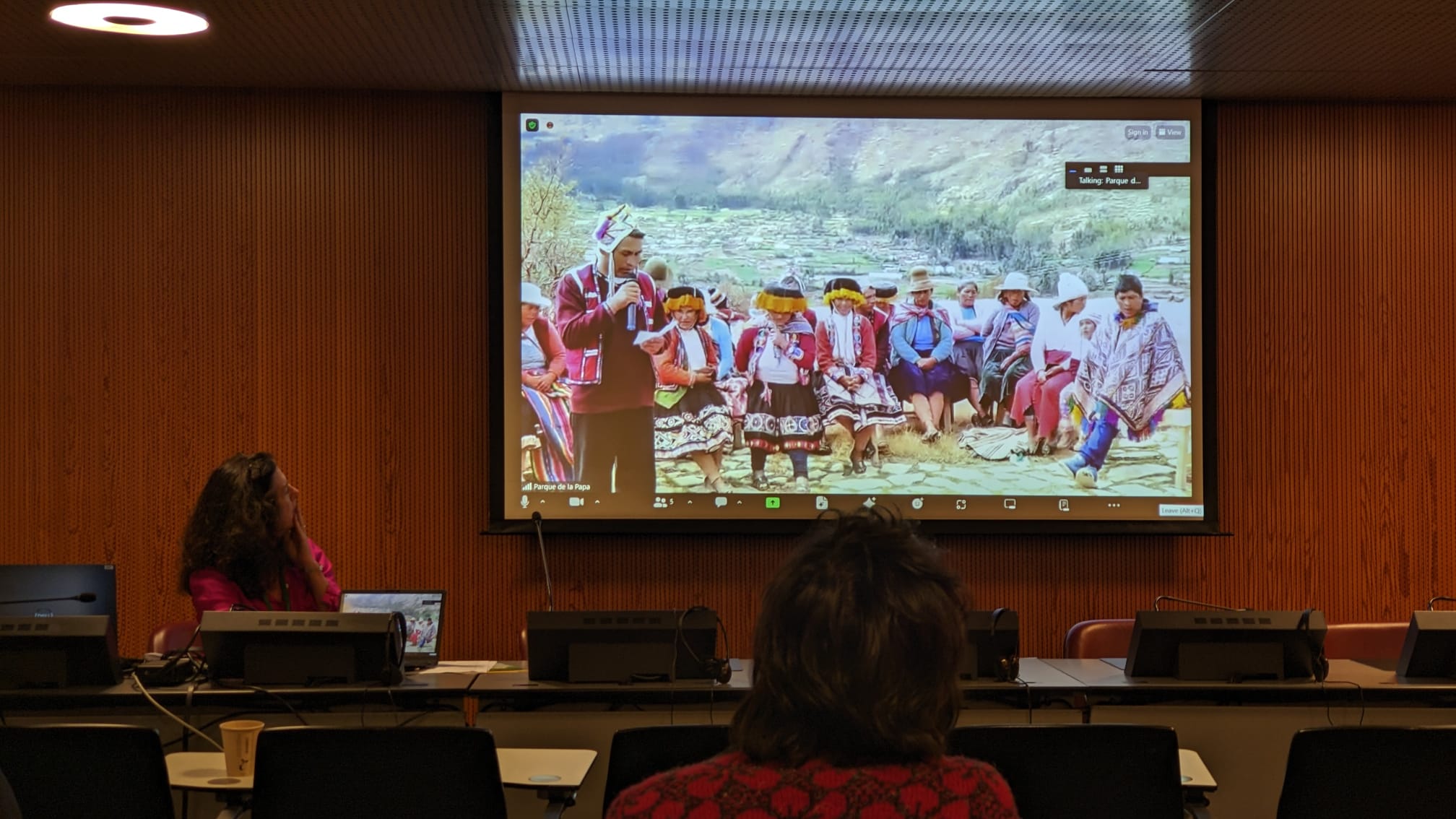In November 2023, IIED, INMIP, ANDES (Peru) and partners organised side events at two global policy meetings on traditional knowledge and genetic resources: the Biodiversity Convention Working Group on Article 8J, and the FAO Treaty on Plant Genetic Resources.

The CBD’s Article 8J requires Parties to ‘respect, preserve and maintain knowledge, innovations and practices of indigenous and local communities embodying traditional lifestyles’ relevant for biodiversity conservation; while the FAO Treaty requires Parties to protect Farmers’ Rights to genetic resources and traditional knowledge.
The side event at the CBD 8J meeting (16 November) focused on “Indigenous and Traditional Territories: strengthening customary sustainable use and governance to achieve 30 x30”. It highlighted the crucial role of biocultural territories and ICCAs in achieving 30x30 and protecting traditional knowledge, and the work of INMIP in establishing a global network of biocultural territories. See: Side Event Registration (cbd.int). Speaking directly from their Andean landscape by video link, Quechua women, elders and youth from the Potato Park presented their biocultural territory model, founded on the concept of Sumaq Kawsay or ‘holistic wellbeing’ which requires balance between people, nature and the sacred world (eg. sacred mountains). The event was organised with UNDP, BMUV, IMPACT (Kenya) and Farmer Seed Network (FSN, China).
At the FAO Treaty on Plant Genetic Resources Governing Body (GB-10), the side event focused on “IP & LC’s in situ conservation initiatives: From the Potato Park to a global network of genetic reserves for climate resilience and Farmers’ Rights”. It was organised with SEARICE, SwedBio, the Global Crop Diversity Trust, FSN (China), Nabzi Sayor (Tajikistan), the Swiss government, the Mountain Partnership. The Executive Secretary of the FAO Treaty (Kent Nnadozie) highlighted the vital role of Indigenous Peoples and local communities in agrobiodiversity conservation and improvement. Speakers stressed the importance of cultural and spiritual values in conserving agrobiodiversity, as part of farmer seed systems and biocultural heritage; and showed how communities still use wild crop relatives to enrich cultivated crops for adaptation (eg. in the Potato Park). The event also highlighted the role of INMIP in establishing a global network for in situ conservation of unique crops in centres of origin and diversity. See event recording here; and article Mountain Partnership: News detail (fao.org)